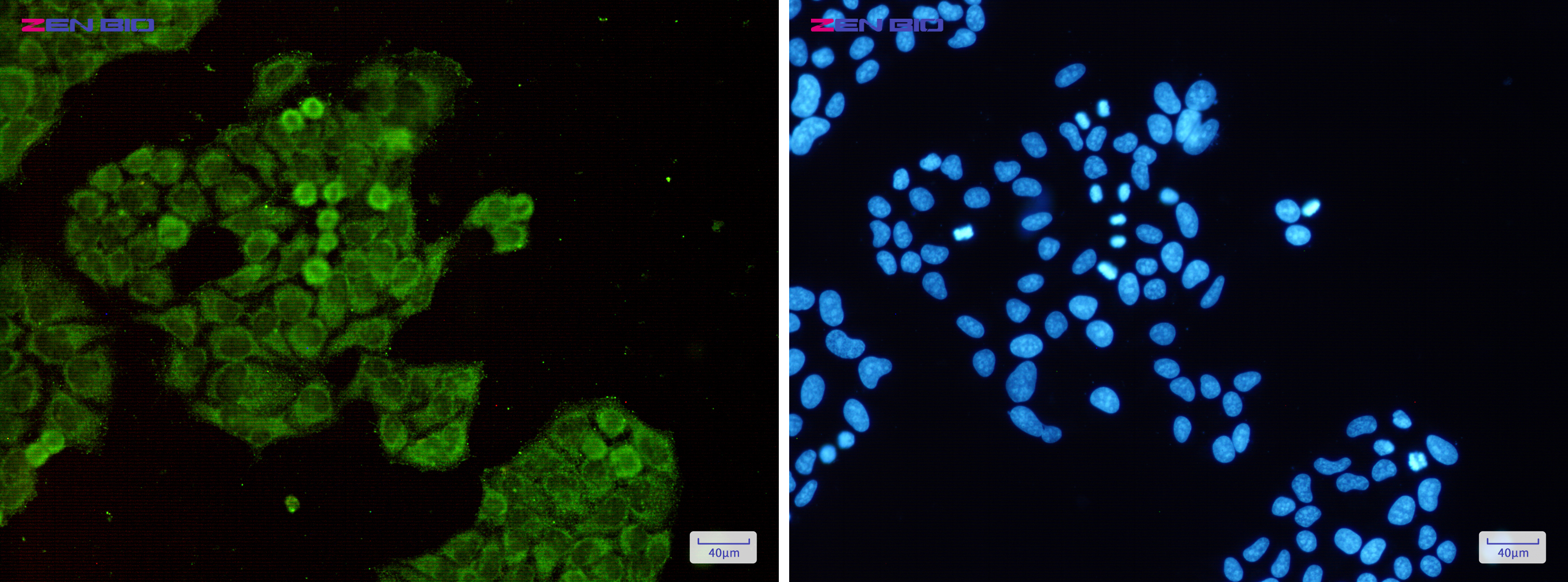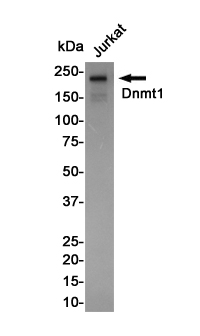-
Product Name
Anti-Dnmt1 Rabbit antibody
- Documents
-
Description
Dnmt1 Rabbit polyclonal antibody
-
Tested applications
WB, ICC/IF, FC, IP
-
Species reactivity
Human
-
Alternative names
AIM; DNMT; MCMT; CXXC9; HSN1E; ADCADN; m.HsaI antibody
-
Isotype
Rabbit IgG
-
Preparation
Antigen: A synthetic peptide of human Dnmt1
-
Clonality
Polyclonal
-
Formulation
Supplied in 50nM Tris-Glycine(pH 7.4), 0.15M Nacl, 40%Glycerol, 0.01% sodium azide and 0.05% BSA.
-
Storage instructions
Store at -20°C. Stable for 12 months from date of receipt.
-
Applications
WB: 1/1000
ICC/IF: 1/20
FC: 1/20-1/100
IP: 1/20
-
Validations

Immunocytochemistry of Dnmt1(green) in Hela cells using Dnmt1 Rabbit pAb at dilution 1/50, and DAPI(blue)

Western blot detection of Dnmt1 in Jurkat cell lysates using Dnmt1 Rabbit pAb(1:1000 diluted).Predicted band size:183KDa.Observed band size:183KDa.
-
Background
Swiss-Prot Acc.P26358.Methylates CpG residues. Preferentially methylates hemimethylated DNA. Associates with DNA replication sites in S phase maintaining the methylation pattern in the newly synthesized strand, that is essential for epigenetic inheritance. Associates with chromatin during G2 and M phases to maintain DNA methylation independently of replication. It is responsible for maintaining methylation patterns established in development. DNA methylation is coordinated with methylation of histones. Mediates transcriptional repression by direct binding to HDAC2. In association with DNMT3B and via the recruitment of CTCFL/BORIS, involved in activation of BAG1 gene expression by modulating dimethylation of promoter histone H3 at H3K4 and H3K9. Probably forms a corepressor complex required for activated KRAS-mediated promoter hypermethylation and transcriptional silencing of tumor suppressor genes (TSGs) or other tumor-related genes in colorectal cancer (CRC) cells (PubMed:24623306). Also required to maintain a transcriptionally repressive state of genes in undifferentiated embryonic stem cells (ESCs) (PubMed:24623306). Associates at promoter regions of tumor suppressor genes (TSGs) leading to their gene silencing (PubMed:24623306). Promotes tumor growth (PubMed:24623306).
Related Products / Services
Please note: All products are "FOR RESEARCH USE ONLY AND ARE NOT INTENDED FOR DIAGNOSTIC OR THERAPEUTIC USE"
